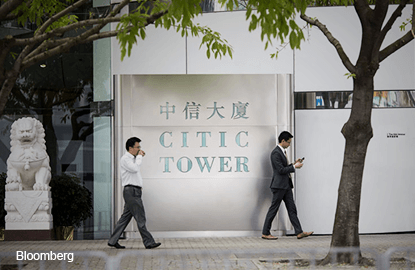
This article first appeared in The Edge Financial Daily, on December 28, 2015.
KUALA LUMPUR: In 2008, Hong Kong-based conglomerate Citic Pacific Ltd, now known as Citic Ltd, was dealt a major blow when it suffered US$2 billion in foreign-exchange losses on the Australian dollar, due to its investment in the Sino Iron ore mine project in western Australia.
Last year, the Securities and Futures Commission (SFC) reportedly took the company and its five former directors to court on behalf of 4,500 investors whom it said lost money due to bad hedges made by the company on the Australian dollar. The case is still pending in court, seven years after it blew up.
It is cases like this that call for the need for protection of a company’s interest, in the face of litigation that could costs millions of US dollars, AIG vice-president and Asia Pacific Financial Lines head Jason Kelly told The Edge Financial Daily in an interview recently.
The directors and officers (D&O) liability insurance coverage is insurance payable to directors and officers of a company, or to the organisation itself, as reimbursement for costs incurred from legal actions taken against alleged wrongful acts, while in their capacity as directors and officers.
Kelly said the D&O insurance coverage market in Malaysia is still nascent. Worth about US$10 million (RM42.9 million) to US$15 million now, he said it is projected to grow at an annual rate of 10%.
Aside from greater corporate governance awareness, market growth may be partly driven by fear of regulatory actions over the implementation of the goods and services tax (GST).
Kelly said AIG had seen a significant jump in D&O insurance uptake since the new tax was enforced.
“Regulatory claims are probably more frequent now with the GST. AIG saw a double-digit rise in claims from pre-GST to post-GST. A lot of them (claims) were on the back of enforcement by regulators.
“They (regulators) have spent more money building up their agencies. They have brought in better people; they are smarter. They have invested in technologies, giving them the tools necessary to investigate companies that have potentially done something wrong,” he added.
In fact, the biggest chunk of claims in Asia — 40% — is related to regulatory actions initiated by agencies such as the SFC in Hong Kong, monetary authorities or independent commissions against corruption, rather than shareholders’, said Kelly.
Other claims are related to third-party claims (25%), inclement practices (19%), shareholder claims (9%) and a small basket of various others, he added.
In contrast, the United States — where D&O insurance coverage was instituted by London-based insurers following the Great Depression — sees significantly more claims from class action suits initiated by shareholders, he said.
This is due to the structure of the legal system rather than shareholders’ lack of awareness of their rights, said Kelly.
“The US legal framework makes it very easy for a single shareholder to bring a class action claim [against a company]. That framework has existed for a long time. In Asia-Pacific, except for Australia and Taiwan, we don’t have class action laws.
“So if you, as an individual, feel you have been aggrieved in some type of shareholder loss, generally you will find you need to fund that entire legal process from your pocket. Most people won’t have the financial resources to do that,” he added.
In terms of Malaysia, Kelly said the exposure of companies to risks is higher here, compared to some other Asian countries.
“Malaysia has a lot of companies focused on natural resources. That involves a lot of cross-border exposure and additional exposure relating to commodity price volatility,” he added.
But how does D&O insurance coverage help improve good corporate governance if the weight of the risk of being held accountable for decisions by directors and officers is partly covered by insurance?
“Specifically for unethical behaviour, AIG and other D&O insurance companies can’t provide insurance if you have done something wrong,” he said.
“We would be jeopardising our insurance licence if we do so. So, if someone is criminally liable for some kind of conduct, the insurance does not respond,” he added.
He said the D&O insurance promotes transparency in an organisation, as the policy is in place to protect directors and officers for the tough decisions they need to make in particular circumstances.
With the safety net, a company is inclined to attract the best top hats with the necessary skills and knowledge to steer a company to greater profitability, he added.
“So, as a director or officer, I think you will have more confidence in making those tough decisions, knowing there’s an insurance policy backing up those decisions,” he said.